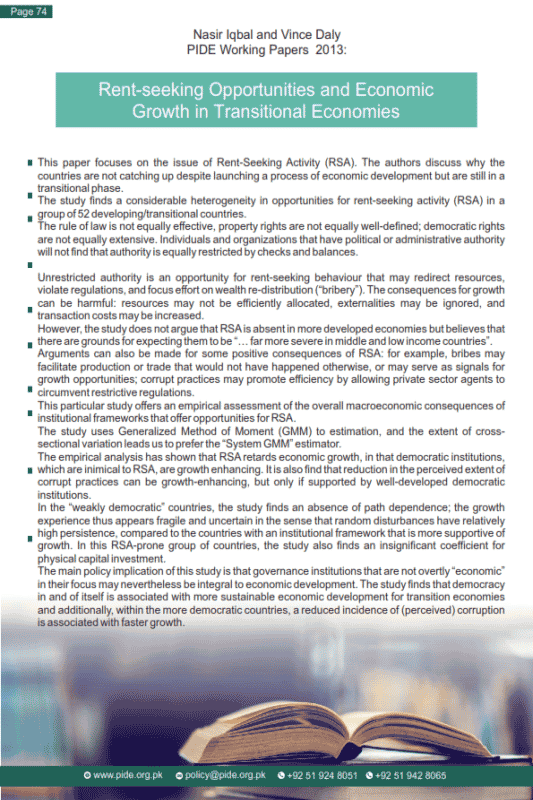Rent-seeking Opportunities and Economic Growth in Transitional Economies (P & R Vol.1 Issue 3)
This paper focuses on the issue of Rent-Seeking Activity (RSA). The authors discuss why the countries are not catching up despite launching a process of economic development but are still in a transitional phase. The study finds a considerable heterogeneity in opportunities for rent-seeking activity (RSA) in a group of 52 developing/transitional countries. The rule of law is not equally effective, property rights are not equally well-defined; democratic rights are not equally extensive. Individuals and organizations that have political or administrative authority will not find that authority is equally restricted by checks and balances. Unrestricted authority is an opportunity for rent-seeking behaviour that may redirect resources, violate regulations, and focus effort on wealth re-distribution (“bribery”). The consequences for growth can be harmful: resources may not be efficiently allocated, externalities may be ignored, and transaction costs may be increased. However, the study does not argue that RSA is absent in more developed economies but believes that there are grounds for expecting them to be “… far more severe in middle and low income countries”. Arguments can also be made for some positive consequences of RSA: for example, bribes may facilitate production or trade that would not have happened otherwise, or may serve as signals for growth opportunities; corrupt practices may promote efficiency by allowing private sector agents to circumvent restrictive regulations.




